Shadows Over Daywalker: Analyzing the Marvel's Blade Delay and Arkane's Creative Crossroads The news rippled through the gaming community like a stake through a vampire's heart: Marvel's Blade, the highly anticipated collaboration between Arkane Lyon and Marvel, is reportedly facing a delay and a "soft reboot.

The news rippled through the gaming community like a stake through a vampire's heart: Marvel's Blade, the highly anticipated collaboration between Arkane Lyon and Marvel, is reportedly facing a delay and a "soft reboot." For fans of immersive sims and Arkane's distinct brand of intricate world-building, this news is cause for both concern and cautious optimism. Can Arkane, a studio celebrated for its unique identity, successfully navigate the established lore and expectations of the Marvel Cinematic Universe (MCU) without sacrificing its soul? As a dedicated player of Dishonored, Prey, and Deathloop, and a lover of the immersive sim genre, I'm here to analyze the potential creative friction at play and what this might mean for the final product.
This image showcases Arkane's signature aesthetic, characterized by intricate world-building and a gothic atmosphere, a stark contrast to the brighter, more action-oriented visuals typically associated with Marvel.
The Arkane Advantage: A Legacy of Player Agency and Environmental Storytelling
Arkane Studios has carved out a unique niche in the industry. Their games aren't just about shooting or slashing; they're about inhabiting a world, understanding its rules, and exploiting them to your advantage. Dishonored allowed players to choose between lethal and non-lethal approaches, affecting the story and the world around them. Prey presented a terrifyingly immersive space station where every object could be a weapon, and moral choices were paramount. Deathloop cleverly twisted time-loop mechanics, encouraging experimentation and rewarding ingenuity.
These games share a common thread: player agency, intricate level design, and environmental storytelling. You learn about the world through optional encounters, hidden notes, and the very architecture of the environments. Arkane's worlds feel lived-in, with a history that unfolds as you explore. This is facilitated by the studio's detailed art direction that focuses on atmosphere and world-building to supplement the narrative elements.
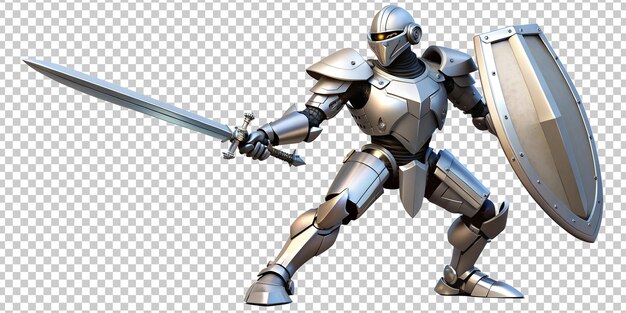 This image illustrates Arkane's focus on player agency and ingenuity in combat, where the environment and unconventional tools become integral parts of the gameplay experience.
This image illustrates Arkane's focus on player agency and ingenuity in combat, where the environment and unconventional tools become integral parts of the gameplay experience.
The MCU Mandate: Balancing Fidelity with Creative Vision
Marvel's Blade presents a unique challenge. It's not just about making a good game; it's about making a good Blade game that fits within the broader MCU. This means adhering to established character lore, fitting into the existing power scales, and potentially even setting up future storylines.
The potential for creative friction is evident. Arkane's games often explore morally grey areas, forcing players to make difficult choices with far-reaching consequences. Think of the Heart in Dishonored 2, which provided context for the characters you encountered, often revealing uncomfortable truths. Or the TranStar employees in Prey, each with their own motivations and secrets. These nuances are harder to reconcile with the more straightforward heroic archetypes often found in Marvel stories.
 This image demonstrates Arkane's storytelling approach of using unconventional tools and mechanics to reveal moral ambiguities and add depth to the game world.
This image demonstrates Arkane's storytelling approach of using unconventional tools and mechanics to reveal moral ambiguities and add depth to the game world.
Could a "soft reboot" suggest that the initial direction for Marvel's Blade veered too far from audience expectations for a Blade game? It's possible that early iterations leaned too heavily into Arkane's signature style, resulting in a vision that felt tonally inconsistent with the source material. This is the tightrope walk of adapting existing properties: developers must balance fidelity to the source material with their own creative vision.
The Specter of Oversight: Marvel Studios and the Creative Process
Increased oversight from Marvel Studios is another factor to consider. While collaboration can be beneficial, too much intervention could stifle Arkane's creativity. Marvel has decades of established character lore and world-building to protect. This could lead to restrictions on Arkane's usual freedom to experiment with unconventional mechanics and narrative structures. How might feedback from Marvel impact Arkane's design choices? Could it lead to a more homogenized experience, diluting the studio's unique identity?
We've seen this happen before with other licensed games. The need to adhere to a specific canon, or to include certain characters or plot points, can sometimes come at the expense of gameplay and narrative coherence. The fear is that Marvel's Blade could become a game that feels more like a Marvel product than an Arkane product.
 This image encapsulates Arkane's penchant for creating games with complex systems and emergent gameplay, features that might be constrained by the established framework of the Marvel universe.
This image encapsulates Arkane's penchant for creating games with complex systems and emergent gameplay, features that might be constrained by the established framework of the Marvel universe.
The Stakes for Arkane: Preserving Identity in a World of IP
The success of Marvel's Blade is not just important for Marvel; it's crucial for Arkane. The studio's fanbase has come to expect a certain level of quality and innovation. A compromised vision could alienate those fans and potentially impact future design decisions at the studio. Will Arkane be given the freedom to truly explore the darker, more morally ambiguous aspects of Blade's world, or will they be forced to adhere to a more sanitized, MCU-friendly interpretation?
The "soft reboot" suggests that Arkane is aware of these challenges and is actively working to address them. Perhaps they're refining the combat system to better capture Blade's unique fighting style. Maybe they're tweaking the narrative to strike a better balance between Arkane's signature storytelling and the established lore of the MCU. Or they are using the extra development time to further integrate the detailed environmental storytelling that has become a signature of their games.
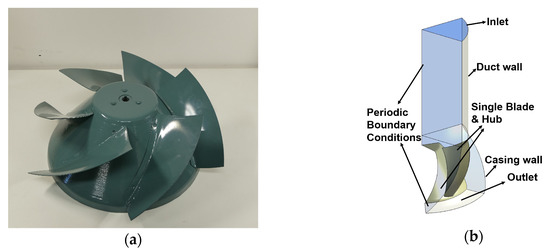 This promotional image represents the sleek, action-oriented style expected from a Marvel game, contrasting with Arkane's more atmospheric and nuanced approach.
This promotional image represents the sleek, action-oriented style expected from a Marvel game, contrasting with Arkane's more atmospheric and nuanced approach.
Can Arkane's DNA Survive?
Ultimately, the success of Marvel's Blade will depend on Arkane's ability to navigate these creative challenges. Can they find a way to inject their signature style of player agency, intricate world-building, and environmental storytelling into a game that also feels authentically like Blade? The delay and "soft reboot" are certainly cause for concern, but they also represent an opportunity for Arkane to refine their vision and deliver a game that satisfies both fans of the studio and fans of the Daywalker.
The potential is there. Imagine exploring the dark underbelly of the Marvel universe, uncovering hidden vampire societies, and making morally ambiguous choices that have real consequences. Imagine using Blade's unique abilities and gadgets to navigate intricately designed environments, finding creative solutions to overcome obstacles. Imagine a story that delves into the psychological toll of Blade's existence, exploring the complexities of his dual nature.
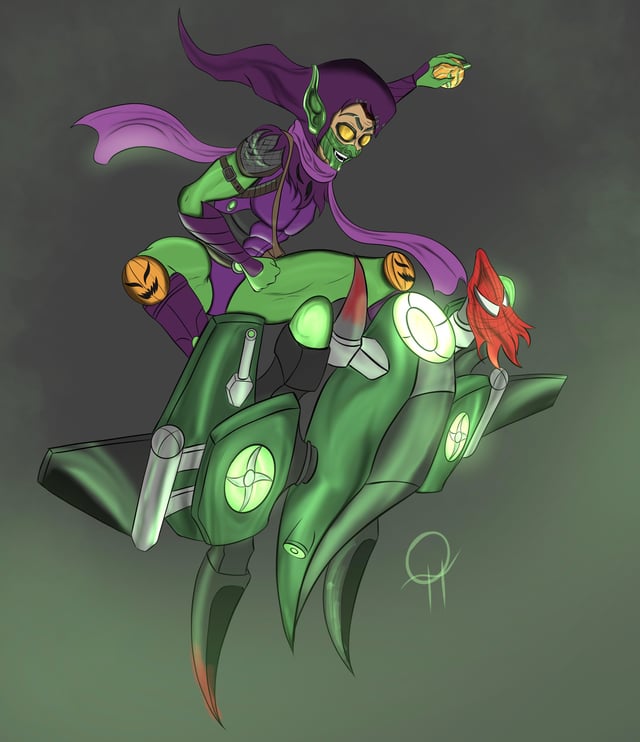 This image visually represents the contrasting styles of Arkane and Marvel, highlighting the challenges of blending their creative visions.
This image visually represents the contrasting styles of Arkane and Marvel, highlighting the challenges of blending their creative visions.
But that potential hinges on Arkane's ability to retain its creative voice in the face of external pressures. The coming months will be crucial in determining whether Marvel's Blade becomes a triumph of collaboration or a casualty of creative compromise. For the sake of Arkane's legacy, and for the sake of immersive sim fans everywhere, let's hope it's the former.
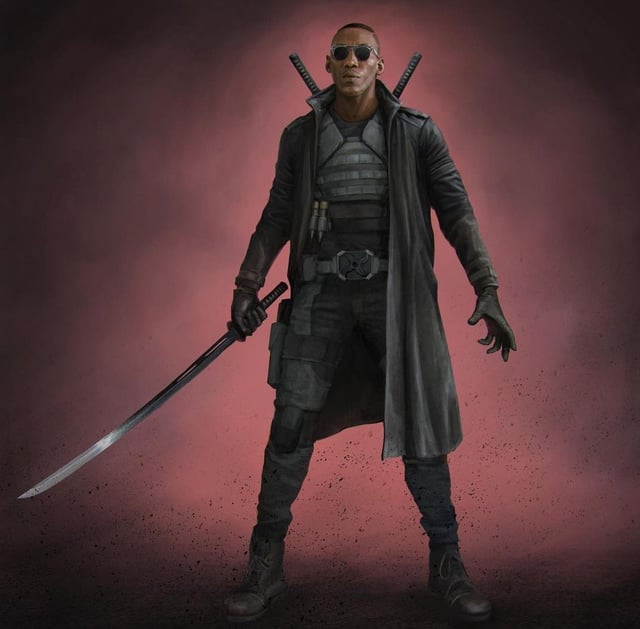 This group shot emphasizes the expansive, interconnected universe of Marvel, which Arkane's Blade game must integrate into cohesively.
This group shot emphasizes the expansive, interconnected universe of Marvel, which Arkane's Blade game must integrate into cohesively.
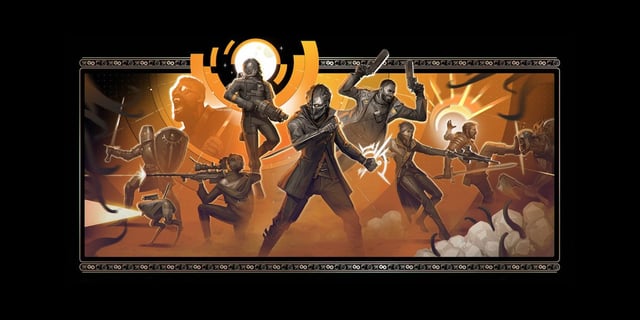 This displays the creative freedom and player agency Arkane provides, which could be limited by the confines of the established Blade/Marvel universe.
This displays the creative freedom and player agency Arkane provides, which could be limited by the confines of the established Blade/Marvel universe.
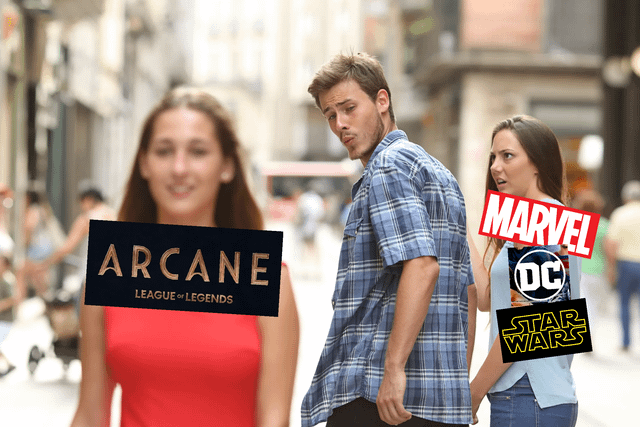 This image represents the darker, gothic elements that Blade embodies and that could potentially align with Arkane's atmospheric design sensibilities.
This image represents the darker, gothic elements that Blade embodies and that could potentially align with Arkane's atmospheric design sensibilities.
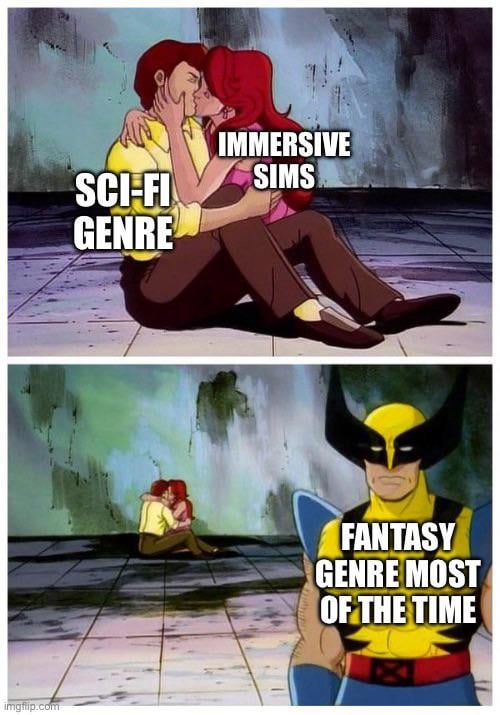 This highlights the player agency and customization that is an important part of the video game experience.
This highlights the player agency and customization that is an important part of the video game experience.